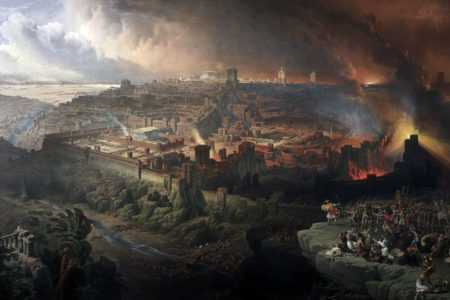Eye on the Middle East May/Jun 2009
As the preacher phrased it in Ecclesiastes, “Cast your bread upon the waters, for you will find it after many days” (11:1).
Well, there may be a twist on the truth of that ancient admonition from King Solomon, the wisest of wise men. Let’s begin in the deserts of Sinai in November 1979. A revolutionary political eruption in the Middle East brought peace between Egypt and Israel. As has always been true in Israeli-Arab relations, Israel was compelled to pay a heavy price, even for a cold peace. It returned territory captured in 1973 when Egypt and Syria attacked the State of Israel in a war of annihilation that didn’t work out for them. Among the things Israel relinquished were the Alma oil fields in southern Sinai—which Israel discovered and then developed.
At the time, many moaned that by giving up the Alma fields, Israel may have surrendered its only opportunity to become energy independent. The oil reserves had become the country’s largest single source of energy, supplying approximately one half of Israel’s needs. Experts estimated that the untapped reserves in the Alma fields were worth some $100 billion and projected that by 1990, the country would achieve self-sufficiency in energy. But peace was more precious than oil; so the Alma and its black gold were gifted to the Egyptians.
In a sense, the Israelis cast their oil upon the sands of Egypt in the hope that someday the investment would bring reward. For three decades that hope faded steadily, and little Israel was forced to depend on other sources. But always lurking in the background was the thought that somewhere, somehow, Israel would tap into the right spot and discover the energy that could transform the future of the Promised Land.
In January, Noble Energy, Inc., of Houston, Texas, announced the discovery of three massive gas reserves off the coast of Haifa. Noble Energy president and CEO, Charles D. Davidson, quoted in The Jerusalem Post, announced that the company is “extremely excited by the results. This is one of the most significant prospects that we have ever tested and appears to be the largest discovery in the company’s history.”
Yitzhak Tshuva, owner of the Delek Group Ltd., one of the owners of the well, was also ecstatic. The Post said Tshuva declared, “I have no doubt that this is a holiday for the State of Israel. We will no longer be dependent [on foreign sources] for our gas, and will even export. We are dealing with inconceivably huge quantities; Israel now has a solution for the future generations.”
So confident are officials in the significance of the find that plans to construct a coal-fired power plant in Ashkelon have been put on hold. And if the discovery proves to be as massive as is believed, the benefit to Israel is incalculable.
Israel cast its bread upon the waters and may finally have found it after many days. But what else can we expect? Israel is the Land of Promise—promises that are not based on wishful thinking. The Lord has designated Israel as His land, graced by irrevocable assurances of a plentiful supply for every contingency. Consequently, for every sacrifice Israelis have made, or will make in the future, the dividends will not only bless His Chosen People but, in the end, be a fountain of blessing for the entire world.
Of one thing we can be certain: This discovery is only a small token of what lies beneath the soil and seas of Israel. Archaeology, industry, and exploration of resources continue to cause us to marvel and understand more fully His purposes. And, above all, the resilience and ingenuity of the People of the Book continue to assure us that what God promised, He will surely perform.







